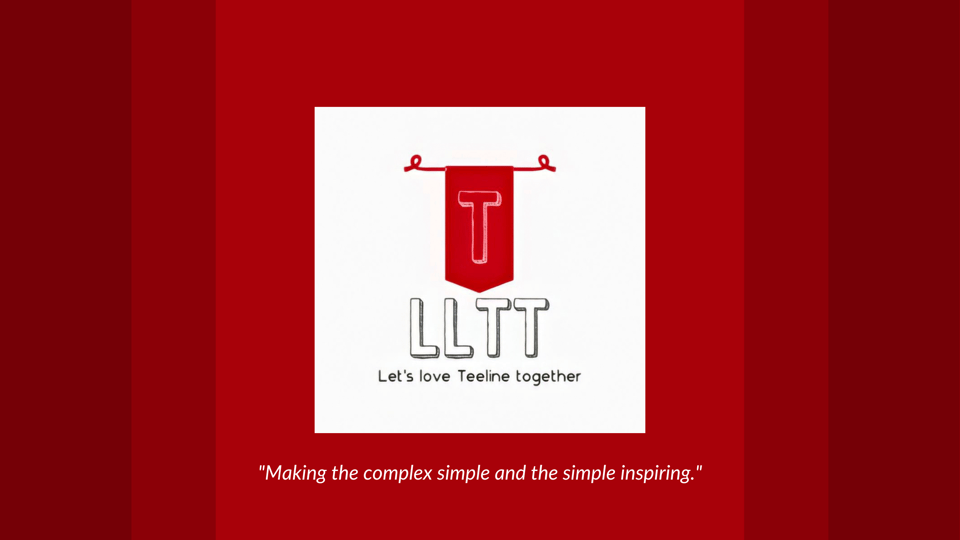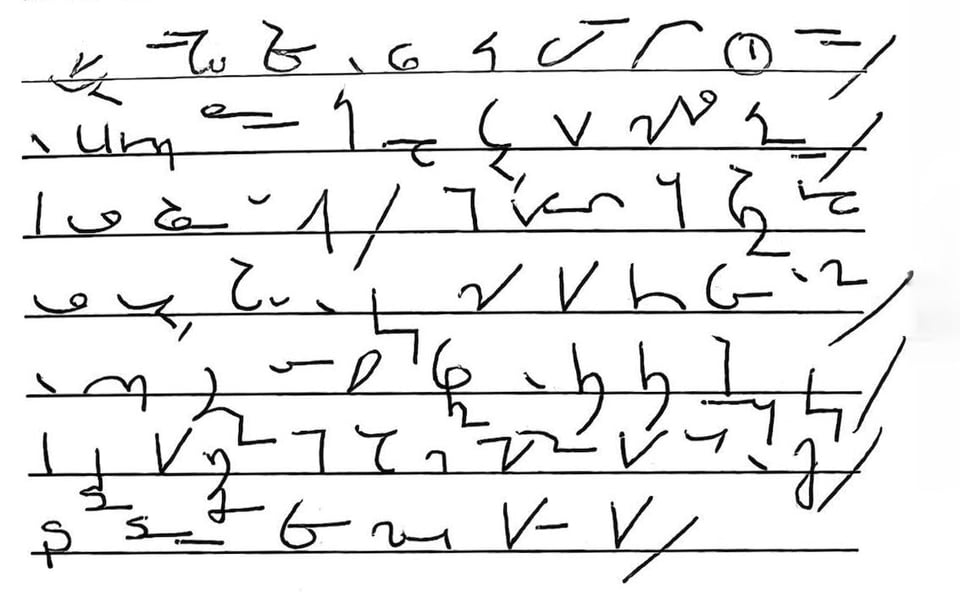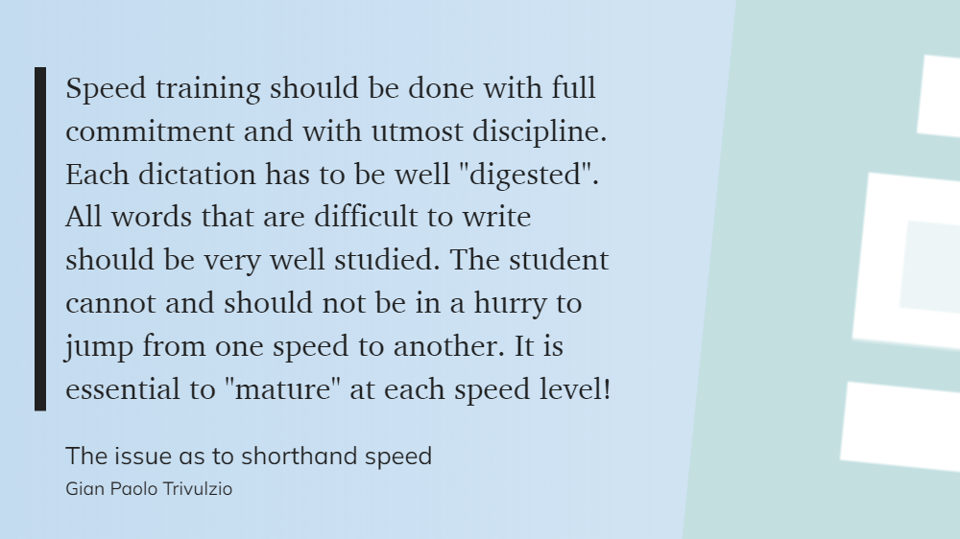LLTT Newsletter #3 - June 2023

LLTT - Issue #3 - June 2023
Welcome back.
In this issue, we're going to start out with some ideas for using Index Cards for revision work before delving into some thoughts and resources on learning with flashcards. Finally, we will discuss the difference between Naïve vs. Purposeful practice (and why it's important to know the difference). Let's get to it!
Index Cards for revision work
Revision work is an essential part of the learning process, helping us to reinforce our knowledge, improve understanding, and prepare for exams. While there are various tools available for revision, index cards are, perhaps, an underutilised option. Here are some ideas as to how you can harness the power of index cards to supercharge your revision work and achieve better results.
Bite-Sized Chunks of Information: Index cards provide the perfect paper platform for breaking down complex topics. Condense key concepts (e.g., the "R" principle or "X" blends), useful word groupings or even single outlines onto individual cards, ensuring each card focuses on a single idea. This approach promotes focused learning and aids in memorisation.
Portability: One of the significant advantages of index cards is their portability. Unlike bulky notebooks, you can carry a stack of index cards wherever you go. You can even find mini index cards you can carry around on a ring.

So take advantage of idle moments during the day to review your cards, whether it's during your commute, waiting in line, or even during short breaks. This accessibility allows for consistent revision on the go.
Active Recall and Self-Testing: Index cards are perfect tools for self-testing, a proven strategy for enhancing memory retention. Challenge yourself by going through the cards and attempting to recall the information before flipping them over to verify your response. This process strengthens your memory and reinforces learning.
Flexibility in Organization: With index cards, you have the freedom to organise your revision materials in various ways. You can sort them by topics, subtopics, difficulty levels, or any other criteria that suit your needs. Experiment with different organisational methods, such as colour-coding or numbering to create a personalised system that makes review efficient.
Progress Tracking and Motivation: Revision can sometimes feel overwhelming, especially when dealing with a large amount of material. Index cards can serve as tangible markers of progress. As you review and master each card, set it aside or mark it with the date to indicate completion. Seeing your stack of revised cards grow provides a visual representation of your progress, motivating you to keep going.
Learning with flashcards
We briefly discuss the use of flashcards on our website here: https://www.letsloveteelinetogether.com/flashcards. Flashcards can be a powerful tool in your learning arsenal.
Although one might not normally associate the study of shorthand with flashcards, there is an old saying "Recognition precedes production." In other words, before you can produce a shorthand outline, it helps to know what that outline looks like. By creating flashcards that feature Teeline outlines and/or word groupings (or even short, well-used phrases) on one side and their corresponding meanings on the other, you can rapidly improve your recognition ability. Regular exposure will also help you familiarise yourself with outlines that you may not regularly come across.
However, as we've discussed in the past, keep in mind that not all words have the same "weight" when it comes to your learning efforts, so you'll want to be choosy about what you initially study. See: Further Thoughts On The New General Service List.
While some may think of them as "old-school" or "boring," flashcards offer several benefits that can enhance learning and retention.
Flashcards promote active recall, which is a powerful learning technique. Read more about active recall here: Active Recall – The Evidence-Based Study Technique You Should Be Using
Flashcards can be used in conjunction with spaced repetition, a learning technique that involves reviewing information at increasing intervals over time. This method optimises the timing of review sessions, focusing on the cards you find most challenging while gradually reducing the frequency of reviewing cards you already know well. It is a key component of several of the more well-known apps such as Anki. Spaced repetition enhances long-term retention and reduces the risk of forgetting information.
Flashcards allow you to break down complex topics or concepts into smaller, manageable pieces of information of your own choosing. By condensing information onto individual cards, you can focus on one concept at a time.
Flashcards are portable and easy to carry around, making them a convenient study tool. You can review them anytime and anywhere, whether you're on the go or have a few spare minutes during the day. Their portability allows for consistent and frequent review sessions, maximising your study time.
Engagement and Interactivity: Flashcards provide an interactive learning experience. They allow you to actively engage with the material by testing your knowledge and assessing your understanding. By flipping the cards and attempting to recall the information, you actively participate in the learning process, which enhances motivation.
Self-paced Learning: Flashcards allow you to set your own pace of learning. This flexibility enables you to spend more time on challenging concepts or move quickly through cards you've already mastered.
While we have only discussed paper-based flashcards, many of the same benefits are enhanced when incorporating the use of app-based technology. If there is interest in having us expand on the benefits (and some drawbacks) of digital flashcard technology, let us know.
https://www.letsloveteelinetogether.com/contact-usNaïve vs. Purposeful practice
Naive practice and purposeful practice are two different approaches to learning and skill development. Let's explore the characteristics of each:
Naive Practice: Naive practice refers to a casual or haphazard approach to practising a skill without a clear focus on deliberate improvement. It often involves repeating the same actions or exercises without considering specific goals or areas of improvement. Naive practice can be characterised by a lack of structure, feedback, and intentionality. While it may help in gaining familiarity with a task or skill, it is unlikely to lead to significant progress or mastery.
Purposeful Practice: Purposeful practice, on the other hand, is a highly focused and intentional approach to learning and skill development. It involves structured and deliberate efforts to improve specific aspects of a skill. Purposeful practice is characterised by the following elements:
a. Clear goals: Practitioners of purposeful practice set specific, measurable, and attainable goals. They identify areas that need improvement and focus their efforts accordingly.
b. Targeted feedback: Purposeful practice involves seeking feedback from knowledgeable sources, such as coaches, mentors, or experts. Feedback helps identify weaknesses and provides guidance for improvement.
c. Repetition with variation: Practitioners engage in repeated practice of the skill, but with deliberate variations. They challenge themselves by pushing beyond their current abilities, gradually increasing the difficulty level.
d. Mental engagement: Purposeful practice requires full concentration and mental engagement. It involves analysing performance, identifying errors, and making adjustments accordingly.
e. Incremental improvement: Purposeful practice focuses on continual improvement. Practitioners set small, achievable milestones and work towards them, gradually building expertise over time.
The key difference between naive practice and purposeful practice lies in the structured approach of purposeful practice, as well as its emphasis on feedback, goal setting, and focused efforts to improve specific aspects of a skill. Purposeful practice is widely recognized as a more effective method for developing expertise and achieving mastery in various domains.
Interesting Links
In this new section, we've curated a collection of interesting links that may ignite your curiosity or broaden your horizons.
https://jsomers.net/blog/dictionaryYour destination is the dictionary.
https://www.jetpens.com/blog/The-42-Best-Pens-for-2023-Gel-Ballpoint-Rollerball-and-Fountain-Pens/pt/974"Suppose you sense an opportunity beyond the word “intention.” You read the dictionary’s thesaurian list of synonyms: “intention, intent, purpose, design, aim, end, object, objective, goal.” But the dictionary doesn’t let it go at that. It goes on to tell you the differences all the way down the line — how each listed word differs from all the others. Some dictionaries keep themselves trim by just listing synonyms and not going on to make distinctions. You want the first kind, in which you are not just getting a list of words; you are being told the differences in their hues, as if you were looking at the stripes in an awning, each of a subtly different green."
https://youglish.com/The title of “The Best Pen” is a weighty one—not everyone wants the same things from their pens, and what makes for one person’s perfect pen may be intolerable to another. It’s also true that different types of pens aren’t directly comparable. The best fountain pen has different characteristics from the best gel pen, and the best pens for writing aren’t the same as the best pens for art.
Use YouTube to improve your English (or French, Italian, Dutch, German, etc.) pronunciation. With more than 100M tracks, YouGlish gives you fast, unbiased answers about how your chosen language is spoken by real people and in context.
Recent website updates
Home Page Refresh
It was time to give our home page a quick refresh. Here, at LLTT, our primary goal is to present inspiring content that allows you to reach your shorthand goals. If there's something you'd like to see that we haven't provided, let us know.
Individual Sentence Practice
https://www.letsloveteelinetogether.com/individual-sentence-practiceWhen it comes to dictation, there are many ways to approach your revision work. Sometimes a dictation flows smoothly and sometimes it doesn't. For the days when it doesn't, you may wish to try breaking a tougher dictation down and concentrate on only one sentence at a time. Let's take a look at Cosy Coats - Part I and II - Individual Sentences on Soundcloud.
In the photo below, notice the arrow which is pointing to the repeat function. Unchecked, Soundcloud will just play each track in the order presented. However, if you click the Repeat function so that a "1" appears, it will loop a specific track indefinitely. This is very useful if you have a particularly challenging sentence that you'd like to drill repeatedly. Click the repeat function once more (no "1" but repeat will still be orange) and it will cycle through the entire playlist and then at the end, will start again at the beginning of that specific playlist.
Very useful. For some, this is going to be a guaranteed game-changer so check it out.
LLTT Newsletter Archives
https://buttondown.email/letsloveteelinetogether/archive/We have added a link to our entire newsletter archive. You can find it in the footer menu of every page.
Expanded Quizlet sets
In the last month or so, we've created several new sets of flashcards that should come in handy for your revision efforts.
Check out a few of our latest:
Council's attempt to reduce anti-social behaviour
Eco-Friendly Glamping Business Supported By Scheme Called "Get Started"
We have also added a quick link to all the LLTT Quizlet flashcards we've created to date. You can find this in the footer menu of every page as well.
https://quizlet.com/letsloveteeline/setsAnd you may have missed...
https://www.letsloveteelinetogether.com/post/how-to-print-flashcards-from-quizletAdditional Teeline Resources
https://www.letsloveteelinetogether.com/teeline-resourcesAs we find additional resources that may prove useful to your Teeline studies, they will be added to this page. Over the past month, we've added our thoughts on a few audio dictation-related apps that should help your revision efforts.
The Let's Love Teeline Together Blog
We added fifteen posts to our blog this month, the most viewed of which was...
https://www.letsloveteelinetogether.com/post/cosy-coats-revisited-reading-practiceSoundcloud
With 269 audio tracks, the LLTT Soundcloud page continues to grow. Find all of our assorted playlists here.
Reading Practice
We're going to wrap up this newsletter with some mock courtroom Teeline reading practice. See how quickly you can read the following.

But before you start:
Grab your stopwatch (or use the one on your phone).
You'll want to record how much time it takes for you to read through it cold the first time.
Then do it again and see if you can beat the previous time.
And finally, repeat for a third time.
You should find each successive pass shaves seconds off the clock and by the third pass, you'll have substantially improved. This is not mere child's play. Reading printed Teeline is critical to developing greater facility with shorthand. Each time you go through this type of exercise, you are firmly imprinting the outlines into your mind. In this manner, reading Teeline will help you to ultimately write better Teeline.
Note that we have also started to add some reading practice posts on our blog. If you missed them, check out:
The Rewards of Being Assertive - Reading Practice - Part One
Cosy Coats Revisited - Reading Practice
Stay tuned and subscribe for the next issue where we share:
The theory of "Anti-Practice" and how it just might help improve your shorthand skill.
An interview with Rosalie Watts, co-founder of Let's Love Teeline Together. We discuss online tutoring and how it differs from the classroom, what type of student benefits from tutoring and the challenges of providing hands-on guidance and feedback to students in an online environment. Not to be missed.
Some thoughts on how to "prepare" a dictation.
Thanks for reading! Visit us at the LLTT Website, YouTube, Twitter, Facebook, Instagram, Quizlet and Soundcloud. If you like what you see, we want to hear from you!
If you have suggestions or topics you'd like to see covered in future newsletters, contact us: https://www.letsloveteelinetogether.com/contact-us.
If you find this newsletter helpful, please forward to a Teeline friend and suggest they sign up!
A Parting Thought

Add a comment: